One of the perennial questions that has faced every people is their relationship to the cosmos. Shorn of our traditional myths in our more secular times, we often attempt to recapture the fundamental mystery of our lives through the more scientific question of whether or not we possess free will. Are we truly free to choose our path or are all our decisions ultimately determined by deeper forces? This perennial debate over free will has recently been reignited yet again, this time perhaps kindled by the spectacular successes of artificial intelligence, which have raised new questions about the nature of our minds.
Right-thinking people often assume that, though they must act as if they have free will, science requires them to deny it. Two recent popular science books by respected neuroscientists make clear, however, that the issue is still far from settled. As reflected in their titles, both Robert Sapolsky’s Determined: Life Without Free Will (2023) and Kevin Mitchell’s Free Agents: How Evolution Gave Us Free Will (2023) make lucid and engaging arguments, based on the latest scientific evidence, which come to starkly opposite conclusions. In fact, so salient are the parallels and contrasts between the two books that many reviewers have been unable to resist playing them off each other. I freely intend to do the same.
***
In the first half of his funny and accessible book, Sapolsky sets out many of the scientific arguments for determinism. His primers on neuroscience, complexity theory, and quantum mechanics are clear and accessible introductions to the states of their respective fields, and he demolishes many of the weaker claims in favour of free will. But his frank style and wit make it too easy to overlook the weaknesses of many of his own claims.
The materialistic scientific argument against free will, as represented by Sapolsky, is that our minds are somehow reducible to our brains, which, as physical systems, are subject to the laws of physics and therefore to an unbreakable chain of causes which leave no space for freedom. Or, as Sapolsky puts it, ‘when you behave in a particular way, which is to say when your brain has generated a particular behavior, it is because of the determinism that came just before, which was caused by the determinism just before that, and before that, all the way down.’ We are thus just like the famous turtles of supporting-the-world fame. Any feeling of freedom that we may have is a mere ‘post-hoc illusion’.
Recent decades of neuroscientific research have amplified these sorts of mechanistic arguments by allocating processes and responsibilities to various parts of the brain. Perhaps the most influential and important study was that of Benjamin Libet (1983), in which subjects were asked to record the exact moment that they decided to randomly push a button. The electroencephalogram data suggested that there was a ‘readiness potential’ in peoples’ brains about 300 milliseconds before they made a conscious decision. Similar outcomes have been replicated in subsequent studies. These findings are often taken to be definitive refutations of our freedom, but, as Sapolsky discusses, they have been subject to intense scrutiny and objections, especially over the exact meaning of the ‘readiness potential’ and the important difference between making a ‘random’ decision and a purposeful one. The readiness potential, for instance, is not actually observed when making more meaningful decisions. ‘I think’, Sapolsky concedes, that ‘all that can be concluded is that in some fairly artificial circumstances, certain measures of brain function are moderately predictive of a subsequent behavior.’ Free will, he believes, survives these studies.
‘And yet’, Sapolsky continues, ‘I think that is irrelevant.’ It might be true that no particular scientific finding disproves free will, but ‘put all the scientific results together, from all the relevant scientific disciplines, and there’s no room for free will’, ‘not a single crack of daylight’ left to ‘shoehorn’ it in. He argues that one cannot understand things by looking at only the ‘last three minutes’ of a film; one must look at everything that came before. And when we do, we see that ‘we are nothing more or less than the cumulative biological and environmental luck, over which we had no control, that has brought us to this moment.’ For him, we are ‘machines’ whose behaviour is ‘dictated by circumstances via logical, highly evolved pathways’, more complicated but not essentially different to that of sea-slugs. Sapolsky throws out a wild challenge to a ‘free willer’: ‘Find me the neuron that started this process in this man’s brain, the neuron that had an action potential for no reason, where no neuron spoke to it just before’, the one not influenced by his immediate environment, his hormones, genes, childhood, life events, ‘nor by the centuries of history and ecology that shaped the invention of the culture in which he was raised. Show me a neuron being a causeless cause in this total sense.’
This is a rather absurd challenge, not least because it derives from a confused definition of ‘freedom’. Sapolsky—along with other famous determinists, such as Sam Harris—seems to assume that freedom must be absolute or nothing, that one must either be an absolutely causeless cause, i.e. God, or absolutely determined. Yet surely a reasonable definition of freedom cannot limit it to the divine (putting aside whether even a god would be subject to some constraints). Sapolsky is correct that we cannot just look at the immediate milliseconds before a decision, but not for the reasons he adduces. Rather, we, and our ancestors before us, have partially made ourselves, through a series of decisions which have helped form our habits, dispositions, and character, even if, to paraphrase Marx, this was not out of circumstances of our own making. As Mitchell points out, ‘to be free of such constraints would be to act randomly, pointlessly, on a whim, for no reason. You would, in fact, cease to be yourself; indeed, you would cease to be a self at all. Selfhood is defined by continuity through time.’ It seems much more fruitful to rely on what Mitchell calls the ‘commonsense understanding’ of ‘degrees of freedom.’
Just as fundamentally, Sapolsky’s challenge requires his opponents to meet a shamelessly high standard of proof—one that no one on either side of the debate is even close to realising—while exempting himself from it. Most of the evidence he relies on establishes, at best, relative influences, probabilities or statistical correlations, rather than iron-clad laws. The supposed universality of a lot of the psychological and social scientific research that he relies upon has also been shown by scholars like Joseph Henrich to be culturally specific to the West. And, despite the explosion of neuroscientific discoveries about the brain, science is still far from resolving many of the most intractable mysteries about the mind, especially the so-called ‘hard problem’ of the origins and nature of consciousness.
If anything, when it comes to this issue, the onus of proof must rightfully be reversed. Our most fundamental orientations in the world, our most basic intuitions, include a sense of our freedom to reason and to make choices. As Sapolsky admits, ‘in everyday life, in jury boxes, schoolrooms, award ceremonies, eulogies, and the work of experimental philosophers, people hold on to the notion of free will with ferocious tenacity.’ This holds across cultures and even species: ‘Heck, even chimps believe in free will’. He himself can self-confessedly never be wholly consistent on the issue. Indeed, as a number of philosophers—such as G.E. Moore and Stanley Rosen—have argued, it is not possible to approach the world without relying on such intuitions. Their truth is more fundamental, more evident and empirically grounded, than any scientific theories which are necessarily dependent on a long chain of fallible reasoning. Even the process of reasoning itself—the ability to freely follow an argument, to be persuaded, to communicate with another being—would be radically compromised if it were fully determined by mechanical operations out of its control.
As Mitchell elegantly puts it,
We make decisions, we choose, we act—we are causal forces in the universe. These are the fundamental truths of our existence and absolutely the most basic phenomenology of our lives. If science seems to be suggesting otherwise, the correct response is not to throw our hands up and say, “Well, I guess everything we thought about our own existence is a laughable delusion.” It is to accept instead that there is a deep mystery to be solved and to realize that we may need to question the philosophical bedrock of our scientific approach if we are to reconcile the clear existence of choice with the apparent determinism of the physical universe.
***
Mitchell has done a real service by grounding our fundamental intuitions about the freedom of the will in a plausible scientific foundation. In Free Agents, he sees the ‘defining characteristic’ of living things as their possession ‘of some degree of agency’, a claim going back to Aristotle, who argued that life has ‘in itself the power of setting itself in movement and arresting itself.’ Mitchell argues that this is what sets living beings ‘apart from the mostly lifeless, passive universe.’ They ‘are autonomous entities, imbued with purpose and able to act on their own terms, not yoked to every cause in their environment but causes in their own right.’ Even the most ‘humble unicellular creatures…have real autonomy and agency, as organized dynamic patterns of activity, causally insulated from their environment, and configured to maintain themselves through time.’ This represents ‘a wholly different type of causation from anything seen before in the universe’, one which introduces to it function, meaning, and value.
Mitchell’s goal ‘is to explore how living things come to have this ability to choose, to autonomously control their own behaviour, to act as causes in the world’. He tracks ‘how agency evolved’ through certain branches of life, gradually increasing in self-directedness and causal autonomy, ‘from the origins of life itself, through the invention of nervous systems, the subsequent elaboration of decision-making and action selection systems, and the eventual emergence of the kind of conscious cognitive control in humans that we refer to as “free will.”’ Humans’ conscious control is due to our ‘remarkable capacity for introspection and metacognition… We can think about our own thoughts, reason about our own reasons, and communicate with each other through a shared language.’
Mitchell compellingly argues that animals’ decision-making cannot be an ‘epiphenomenon’, an illusory process derived from more fundamental processes, because ‘all of that neural machinery is expensive to build and to operate. Those costs are worthwhile only because that information could be profitably put to good use in guiding behaviour.’ He argues that there is obviously ‘a physical mechanism’ underpinning the behaviour but that ‘a purely reductionist, mechanistic approach to life completely misses the point’, because ‘the causation is not physical in that sense—it is informational.’ In a convincing, but technically difficult point, he asks, ‘if the lowest level interactions are causally comprehensive, why would there exist configurations of matter that seem to exist precisely because that configuration embodies actionable information in a way that causally influences action and provides a selective advantage?’ He therefore believes that ‘the organism is not mechanically driven by stimuli from outside; it is interpreting these signals in its capacity as a self. The organism is meeting the world halfway, as an active partner in a dance that lasts a lifetime.’
***
Mitchell thus provides powerful arguments for the existence of free will. Yet, demonstrating this freedom is ultimately dependent on a more fundamental question: what exactly are these ‘minds’ with which we make decisions? And what is their exact relationship to the body and brain? And here, while more philosophically sophisticated than Sapolsky, Mitchell also falters.
For Sapolsky, the mind just unproblematically emerges from the complex ‘adaptive system’ of the brain, from its ‘simple constituent parts having simple local interactions, all without centralized authority.’ He thereby tends to equivocate between the language of mechanism and of decision making. Mitchell, in contrast, recognises that there is a genuine problem here, and concedes that ‘as to how such conscious mental experiences come about, well frankly, we don’t know.’ But he is wary of too much focus on ‘the mind’, ‘partly because the concept is so poorly defined and encumbered by a historical load of dualist baggage.’ He warns us against seeing it ‘as a nebulous, mysteriously nonphysical mind that is “in charge”: the ghost in the machine.’ Just like Sapolsky, he sees it as instead somehow ‘emerging’ from the underlying complexity. ‘Maybe’, he speculates, ‘anything with that kind of recursive architecture would be conscious to some degree.’ Regardless, he emphasises that ‘our minds are not an extra layer sitting above our physical brains, somehow directing the flow of electrical activity. The activity distributed across all those neural circuits produces or entails our mental experience’. And this activity is functionally driven by information. Mitchell calls this ‘cognitive realism’, whereby neural patterns have causal agency by virtue of what they mean.
But this theory does not seem entirely sufficient to escape a deeper level of determinism. Mitchell concedes that his ‘description of the processes involved in action selection risks giving the impression of a mechanism churning away or of a computer running a linear algorithm.’ His account, in fact, comes close to compatibilism,the attempt to reconcile freedom and determinism by arguing that we are complex, physically determined systems which can still be treated as ‘free’ if our actions are due to causes internal to ourselves. Both Mitchell and Sapolsky rightly see this as an unsatisfactory dodge of the fundamental issues. As Mitchell says, compatibilists ‘seem to argue that we can treat humans and other organisms as if they have some causal power, even though we know that they are not really making choices.’ He tries to escape this dilemma by pointing to the fundamental indeterminism of physical processes. He correctly argues that the Laplacian idea of a universe of strictly predetermined clockwork has been supplanted by the strangely probabilistic and unpredictable world of quantum physics. He believes that this indeterminacy of quantum systems at ‘the lowest levels’ of reality can ‘introduce indeterminacy at higher levels’ and that this perhaps carves out some space for genuine freedom of the will. This might be true and is an important corrective to the popular view of physics but by itself it does not quite get us there. Indeed, Sapolsky—at his best in critiquing these sorts of arguments—convincingly argues that a highly complex chaotic or quantum system, even if ‘unpredictable’ or probabilistic, is still mechanistically subject to the regularities of physical laws.
Ultimately, Mitchell cannot adequately account for the mind because he is tied to certain unhelpful assumptions about the fundamental nature of reality. Like many people today, including Sapolsky, he is a ‘physicalist’, or ‘materialist’, believing that only ‘physical’ things exist. The current prestige of physicalism ultimately derives from Descartes and the seventeenth-century scientific revolution. Despite being the default assumption of much of contemporary neuroscience, physicalism does not seem able to account for the particular nature of our mental experiences. For physical things just ‘are’. Matter, in Descartes’ traditional formulation, is a passive substance defined by extension and movement. In contrast, living creatures, at least those with minds, have something which it is ‘like’ to be them, a subjective awareness of themselves and their environment. We have experiences, thoughts, sensations—seeing a sunset, feeling pain or love, or thinking through a complex philosophical problem about free will—and all of this is brought into a momentarily unitary field of consciousness. Philosophers refer to these distinctive mental states as ‘qualia’.
It is very difficult to argue that these qualia are ‘illusory’ for the very notion of illusion requires a being that is falsely ‘aware’ of something. Philosophers have provided a series of thought experiments which compellingly demonstrate that these mental states are irreducible to physical ones. In the ‘Chinese Room’ experiment, John Searle posited himself as sitting inside a room and having Chinese phrases passed to him from the outside. Despite knowing no Chinese, he is able to ‘translate’ these phrases using a basic set of instructions about how to convert the symbols. To the people outside, this process would be indistinguishable from true knowledge, but there is a clear difference between this mere processing of ‘information’ and what we mean by genuine understanding or awareness. Likewise, in Frank Jackson’s scenario of ‘Mary’s Room’, a brilliant scientist, despite living in a black and white room, is an expert on the physical processes of colour perception. If she one day were to experience the colour red for the first time, most would agree that she would indeed have new knowledge. Thomas Nagel made similar points about the irreducibility of our qualia in imagining whether we can ever know ‘what it is like to be a bat’, and David Chalmers did it by exploring the possibility of philosophical zombies.
If, as these various arguments suggest, minds are in some fundamental way different to physical processes, it is difficult to see how they can simply ‘emerge’ from these processes. Something can only emerge from an underlying thing or ‘substrate’ if that substrate already possesses the potential for that thing. A society ‘emerging’ from individuals alters their behaviour but not their essential nature. Likewise for molecules out of atoms. No matter how complex a physical system, as traditionally understood, becomes, it remains just a physical system. There is no reason why subjective awareness would arise in it. We might therefore need to reconsider our assumptions about the nature of things, to search for a theory which can account for the mental as a real property of the universe.
None of the prevailing theories is entirely problem-free. The theory, in particular, of mind and body being two entirely distinct substances (substance dualism) seems difficult to reconcile with what we increasingly know of the physical correlates of the mind. Some philosophers conversely suggest that a degree of consciousness underlies all things (panpsychism or, in its more rigorous form, idealism); others that there is one substance underlying both physical and mental things which has properties capable of generating both (neutral monism). Kant claimed that this problem of mental freedom is actually unsolvable, one of the antinomies of reason for which there are irreconcilable and necessary arguments on both sides. Regardless, a serious account must at least acknowledge the genuine problems. All that is sure is that, as Aristotle said, ‘to attain any assured knowledge about the soul is one of the most difficult things in the world.’
***
But grappling with these issues is critical, because at stake is not just very real scientific and technological implications, including the possibility of genuine artificial intelligence, but our very humanity.
Curiously, Sapolsky seems committed to determinism precisely because of these stakes. He devotes the second and weaker half of his book to perversely arguing that life would be better if we denied free will. We must live, he declares, with the ‘consequences of what science is teaching us’, that our nature and behaviour are out of our control. In fact, he is put into
a detached, professorial, eggheady sort of rage by the idea that you can assess someone’s behavior outside the context of what brought them to that moment… And by the conclusion that righteous judgment of others is okay because while life is tough and we’re unfairly gifted or cursed with our attributes, what we freely choose to do with them is the measure of our worth. These stances have fueled profound amounts of undeserved pain and unearned entitlement.
He admits that he feels ‘crazy, embarrassed, trying to make the argument’ that no one is responsible for their actions. Yet, he has testified to this effect in numerous criminal cases. He calls for us to wean ourselves off the ‘joy of punishment’ and reassures us that ‘we’ve done all this before’ in changing our ideas about epilepsy and schizophrenia.
Sapolsky correctly points out the huge role of moral luck in our lives, one that is all too often denied when considering matters of justice. But there is something quite funny about the professor being morally outraged about people believing in moral responsibility. By his own logic, it is not their fault. And he himself freely admits that, though he tries ‘to ruthlessly hold myself to the implications of all this turtling’, he only sometimes succeeds and still illogically holds on to the importance of morality. There is little room left for morality—for the value judgement of actions—if no action is under our control.
Even if determinism were true, it is far from clear that it would make the world a better place to insist upon it. Sapolsky points to equivocal research purporting to show that a determinist society would not run amok, and this is quite possibly correct. He, however, also points to studies which show a significant decline in the well-being of people primed to believe they are determined. Having the perfect excuse would surely not encourage people to hold themselves to higher standards when faced with difficult decisions. Indeed, if one truly believed in determinism, it would make a mockery of our lives. It would destroy all the meaning of our actions, of our projects, our hopes and prides and joys. There would no longer be any great achievements, no responsibility for our actions, no point in striving to be a better version of ourselves. Nor, of course, would there be any point to Sapolsky’s book because no true ‘persuasion’ would be possible and none of us would be free to choose to believe what he has to tell us.
None of this seems to worry Sapolsky. He blithely proclaims that ‘the science in this book ultimately teaches…that there is no meaning’ and that ‘there is nothing but an empty, indifferent universe in which, occasionally, atoms come together temporarily to form things we each call Me.’ But ‘the only way’ these blobs of atoms ‘have survived’ is ‘by having evolved a robust capacity for self-deception’, especially about the freedom of their will. What a bizarre creature we would be, and what a terribly bleak universe to live in, if this were true, if we were just bags of chemicals unfathomably required to delude ourselves with the illusion of meaning in order to survive. Luckily, as Mitchell has excellently shown, science does not determine us to embrace such an incoherent nightmare. The existence of free will remains a real, plausible possibility. Between the two alternatives, the choice is yours.
Related reading
Consciousness, free will and meaning in a Darwinian universe: interview with Daniel C. Dennett, by Daniel James Sharp


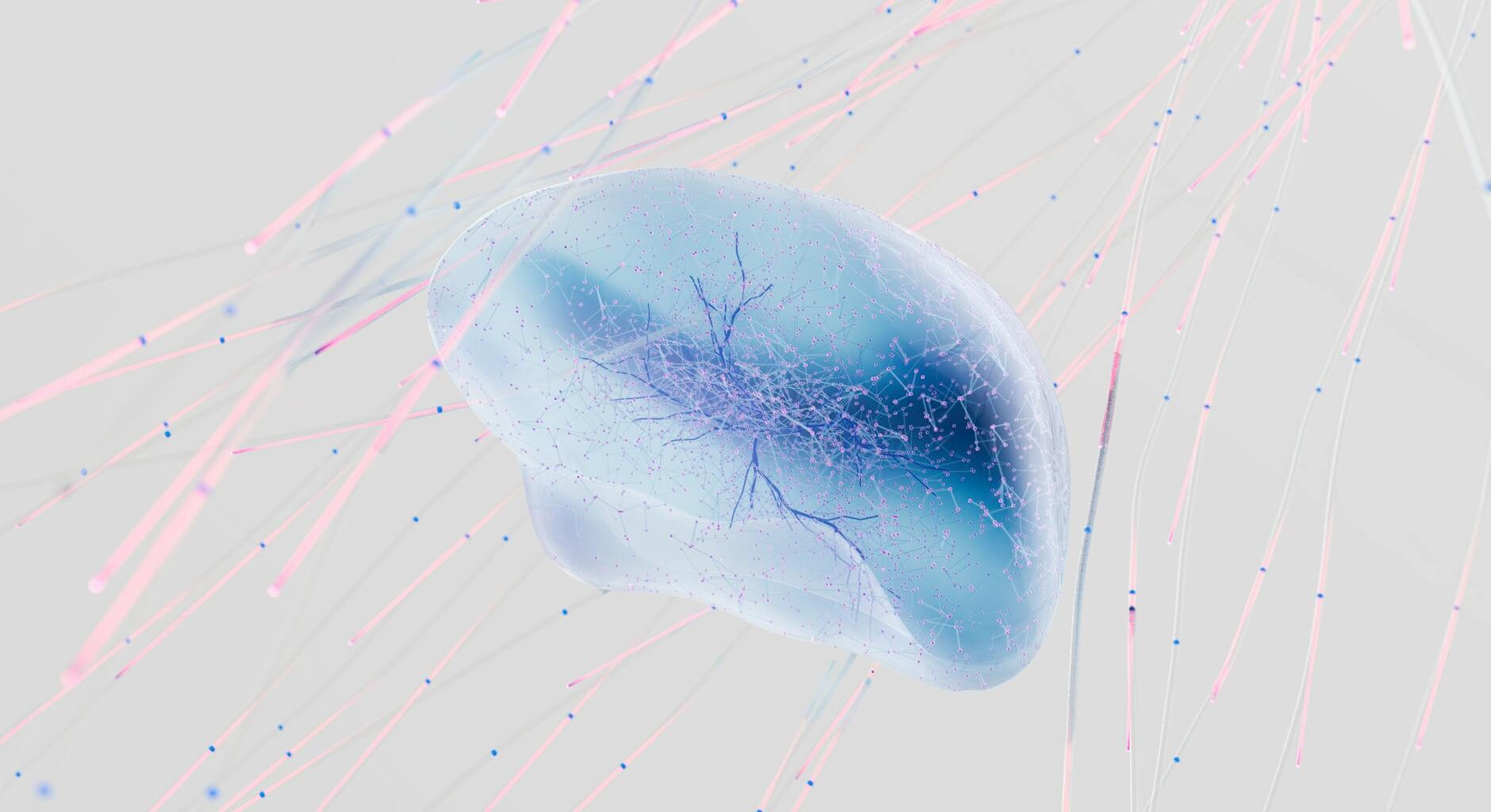
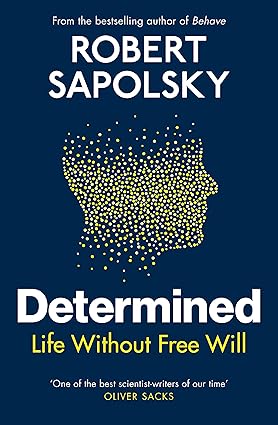
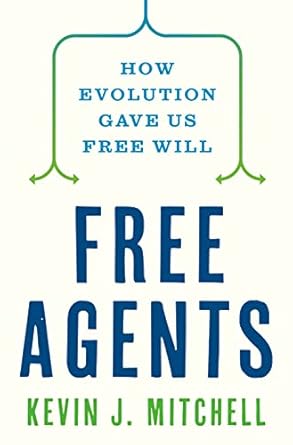
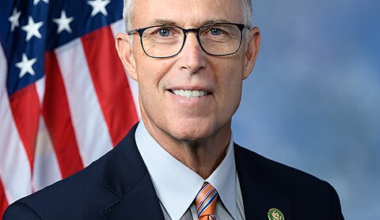

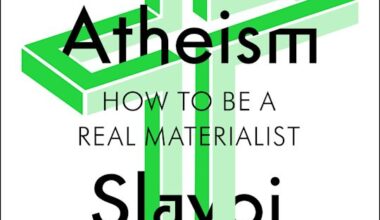

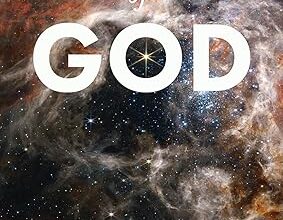
Your email address will not be published. Comments are subject to our Community Guidelines. Required fields are marked *
Donate